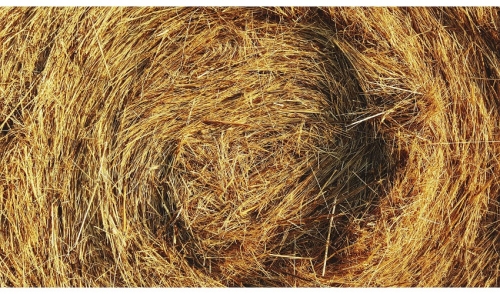
How to Preserve Nutrients in Hay
Proper storage of hay between harvest and feeding is critical for preserving nutrients and assuring that you'll have high quality hay to feed your cattle during the winter months they need it most. The nutrient requirements of cattle are more likely to be met with quality hay that is well stored, according to Mark L. Wahlberg, Extension Animal Scientist, Virginia Tech.
Small square bales, weighing from 40 to 70 pounds, should be stored in a barn or other structure with a roof to minimize dry matter losses. Due to the size, shape, and weight of large round bales, storage options are often limited and these may be stored outside.
The outside portion of the big, round bales are the most susceptible to weather damage. To protect the hay from substantial loss, water infiltration from the top, sides, and bottom must be prevented. One key to reducing hay storage loss is to break bale contact with the ground, says Wahlberg. He suggests using a gravel base or stacking bales on pallets, poles, or old tires to reduce the risk of moisture coming up from the ground into the bales. Plastic caps, or other means of protecting the top of round bales also helps to reduce losses from moisture.
